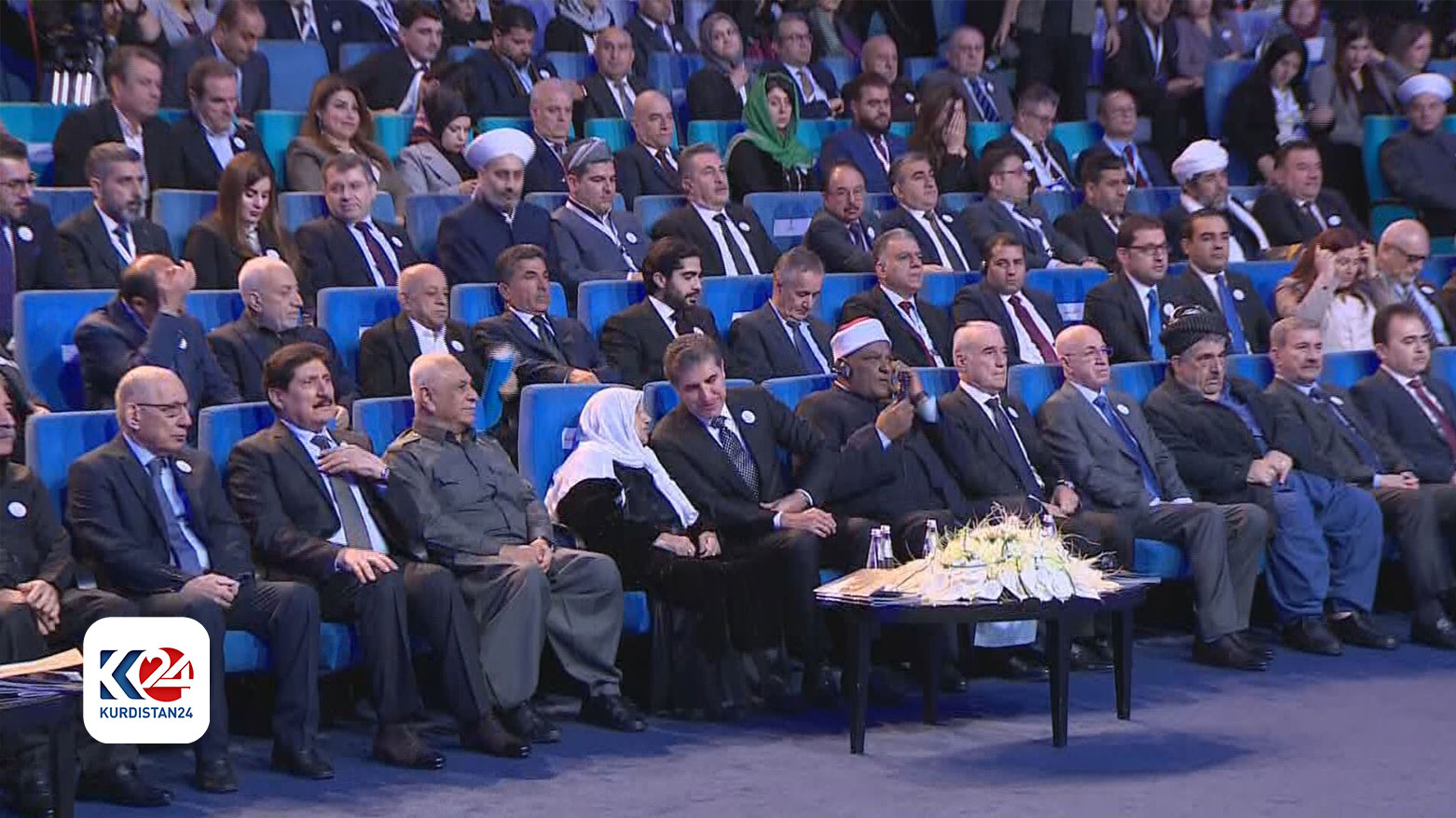Intellectual symposium celebrates philosophy and thought of Professor Mustafa Zalmi in Erbil
The event, attended by Kurdistan Region President Nechirvan Barzani, highlights the remarkable contributions of the late Professor Mustafa Zalmi to Islamic scholarship and legal studies.

Dec. 1, 2024
ERBIL (Kurdistan24) – Erbil is hosting a significant intellectual symposium on Sunday in collaboration with the Mustafa Zalmi Cultural Organization.
The event, attended by Kurdistan Region President Nechirvan Barzani, highlights the remarkable contributions of the late Professor Mustafa Zalmi to Islamic scholarship and legal studies.
The program includes speeches by President Barzani and other government officials, as well as two-panel discussions exploring Zalmi’s enduring influence.
Celebrating the Life of Professor Mustafa Zalmi
Born in 1924 in Zalmi village, Sulaimani Province, Professor Mustafa Zalmi (1924–2023) was a luminary in Kurdish Islamic scholarship and jurisprudence.
His academic journey began in 1934, encompassing deep studies in various Islamic disciplines.
Key milestones in his academic career include:
1946: Certification in Islamic Sciences from the Ministry of Endowments
1965: Bachelor's degree in Law from Baghdad University
1968: Master's in Sharia from Baghdad University
1971 & 1973: Two master’s degrees in Comparative Jurisprudence and Law from Al-Azhar University
1975: Ph.D. in Comparative Jurisprudence
2004: Ph.D. in Law from Baghdad University
A Legacy of Scholarship and Service
Professor Zalmi was one of Iraq’s most revered legal scholars. He authored over 50 books on Sharia and law, alongside 40 research papers in law, philosophy, and Islamic jurisprudence.
His textbooks are cornerstones in universities across Iraq, Jordan, Indonesia, and Yemen.
As a mentor, Zalmi supervised over 100 doctoral and master's theses, inspiring generations of scholars. He was also an instrumental figure in the Kurdistan Islamic Intellectual Forum, bridging traditional Islamic jurisprudence with modern legal studies.
Earlier in his career, he served as an army imam, participating in the July 14, 1958, revolution, showcasing his commitment to both religious scholarship and Kurdish national rights.
This symposium honors his profound contributions to Islamic thought and legal studies, ensuring his legacy continues to inspire future generations in Kurdistan and beyond.